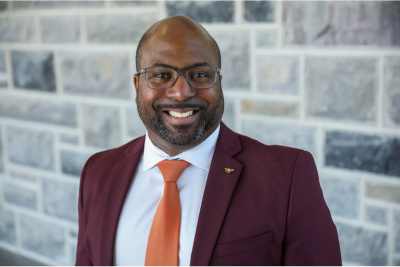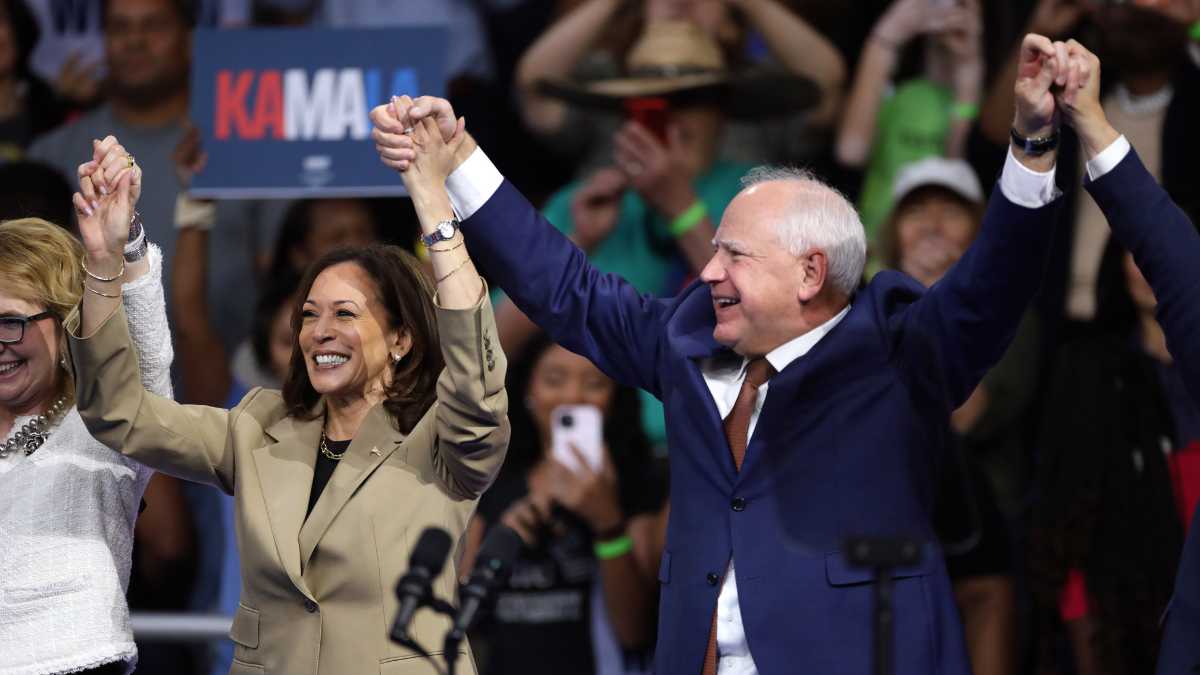By James S. Bridgeforth, Ph.D.
In the wake of the recent debate between former President Donald Trump and Vice President Kamala Harris, a harsh reality has emerged: the future of America is inextricably linked to our commitment to diversity, equity, and inclusion (DEI). This is not just a policy conversation; it is a defining moment for our national identity. The stakes are high, and the consequences of inaction are profound.
During the debate, Trump’s rhetoric stood as a glaring reminder of a past we thought we were moving beyond. His incendiary comments and blatant dismissal of DEI principles highlight a significant disconnect with the contemporary fabric of American society. In stark contrast, Harris’s respectful demeanor and inclusive vision illuminated a path forward—one that acknowledges the value of every individual, regardless of their race, ethnicity, or background.
This moment was not merely a clash of personalities; it represented a fundamental ideological divide that shapes our nation today.
The Data Speaks Volumes
The support for DEI among Americans is not just anecdotal; it is reflected in robust data. A recent Washington Post survey revealed that 60% of Americans hold a positive view of DEI initiatives in the workplace. Pew Research has consistently shown that a majority believe that increasing diversity enriches both our society and economy. LinkedIn data corroborates this, indicating that 60% of professionals see diversity as a cornerstone of team success.
These figures reflect a transformative shift in our national consciousness—a shift that some political leaders seem intent on undermining.
As America’s demographics shift, projections suggest that by 2050, white Americans will no longer be the majority. This change should be embraced, not feared. It is a historic opportunity to cultivate a more equitable society, rich in diverse perspectives that can drive innovation and resilience. Yet, the alarming trend of anti-DEI legislation sweeping through more than 30 states sends a chilling message: a rejection of progress in favor of an exclusionary past.
A Regressive Push Against Progress
Those who promote anti-DEI narratives are not merely engaging in political theatrics; they are actively working against the very principles that have historically propelled our nation forward. These actions perpetuate structural inequalities, making it increasingly difficult for many Americans to reach their full potential.
This is not just a concern for marginalized communities; it is a concern for the integrity of our society as a whole. Reflecting on the legacies of historical figures like Abraham Lincoln, Lyndon Johnson and Dr. Martin Luther King Jr., we see that our progress has always been intertwined with the struggle for greater inclusivity. Their visions of justice and unity are as relevant today as they were in their time. Yet, we find ourselves grappling with a resurgence of rhetoric that echoes darker chapters in our history—rhetoric that seeks to divide rather than unite.
The Republican Party’s Misguided Path
[perfectpullquote align=”full” bordertop=”false” cite=”” link=”” color=”” class=”” size=””]The Republican Party must recognize a crucial lesson: an anti-DEI stance is not only morally indefensible; it is a losing strategy in a rapidly changing America. In a climate dominated by misinformation and fearmongering, the moral imperative to champion DEI has never been clearer. Progress is only possible when we embrace the diversity that defines our nation.[/perfectpullquote]
As we look forward, the call to action is urgent. If we are to prevent America from sliding backward into intolerance, we must reaffirm our commitment to diversity, equity, and inclusion—not merely as policies but as fundamental principles woven into the very fabric of our society.
Education can serve as a powerful vehicle for this change, shaping leaders who not only understand the importance of diversity but are prepared to advocate for it.
The Stark Reality Ahead
The current political landscape is littered with efforts to erode the gains we have made. If the anti-DEI wave continues unchecked, we risk creating a society where the ideals of justice and equity are not only neglected but actively dismantled. The question we must confront is chilling: will America choose the path of unity and inclusivity, or will we succumb to the siren call of division and hatred?
The choices we make in the coming years will determine not only our political landscape but also the very soul of our nation.
As it stands, the light of hope flickers dimly amid the encroaching shadows of intolerance. Our commitment to DEI must not waver; it is essential for the flourishing of our society and the realization of a future where every individual has the opportunity to thrive.
Conclusion: A Moral Imperative
In conclusion, the urgency to embrace DEI is not just about social justice; it is about the survival of our democratic ideals.
The strength of America lies in its diversity, and our collective future depends on our ability to nurture and uplift every voice within our society.
Let us move forward with resolve, recognizing that the pursuit of a more inclusive society is not merely a political stance but a moral imperative. The time to act is now; the future of our nation hangs in the balance.

Bridgeforth enjoys writing as a political columnist who is a passionate advocate for justice and equality whose academic journey reflects a profound commitment to these ideals. With a bachelor’s degree in Sociology from Catawba College, Bridgeforth began his quest to understand and address systemic inequalities. He furthered his expertise with a master’s degree in Higher Education Administration from The University of Massachusetts-Amherst, followed by a Ph.D. in Higher Education Administration and Institutional Research from The University of Southern Mississippi.
Beyond his impressive academic credentials, Bridgeforth is deeply involved in organizations dedicated to empowerment and community service, including Alpha Phi Alpha Fraternity, Inc. and 100 Black Men of America. His columns provide insightful commentary on equal opportunity, social justice, economic equity, and higher education, driven by a sincere desire to amplify voices and champion the causes of those often marginalized.
Through his writing, Bridgeforth brings a blend of scholarly rigor and heartfelt advocacy, aiming to inspire change and foster a more just society for all.




